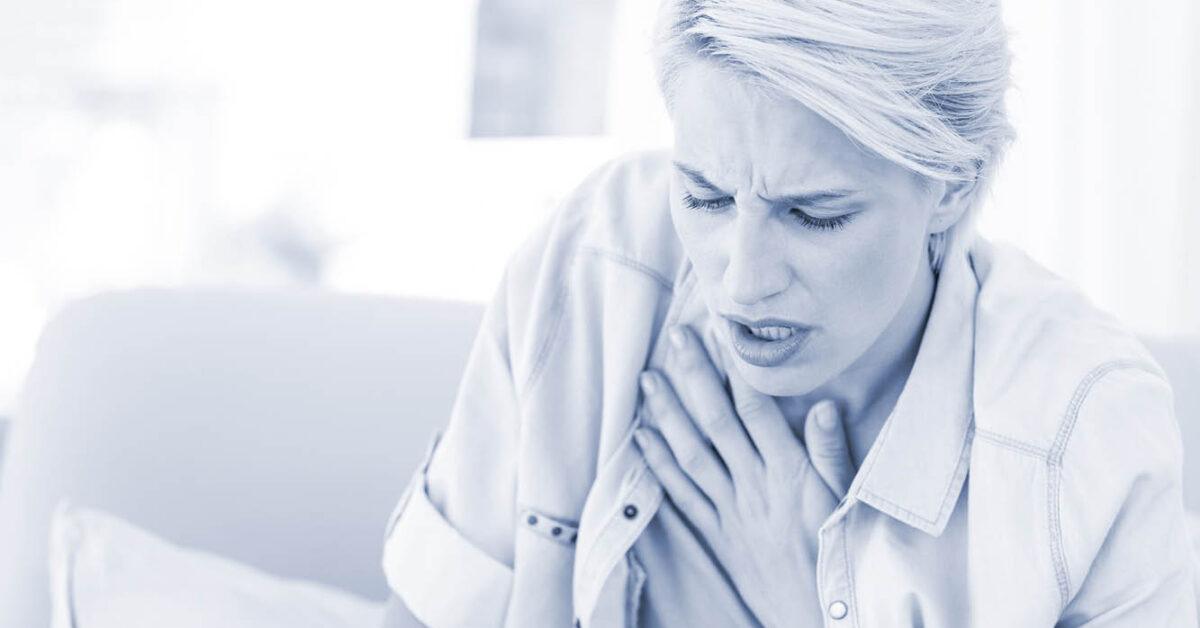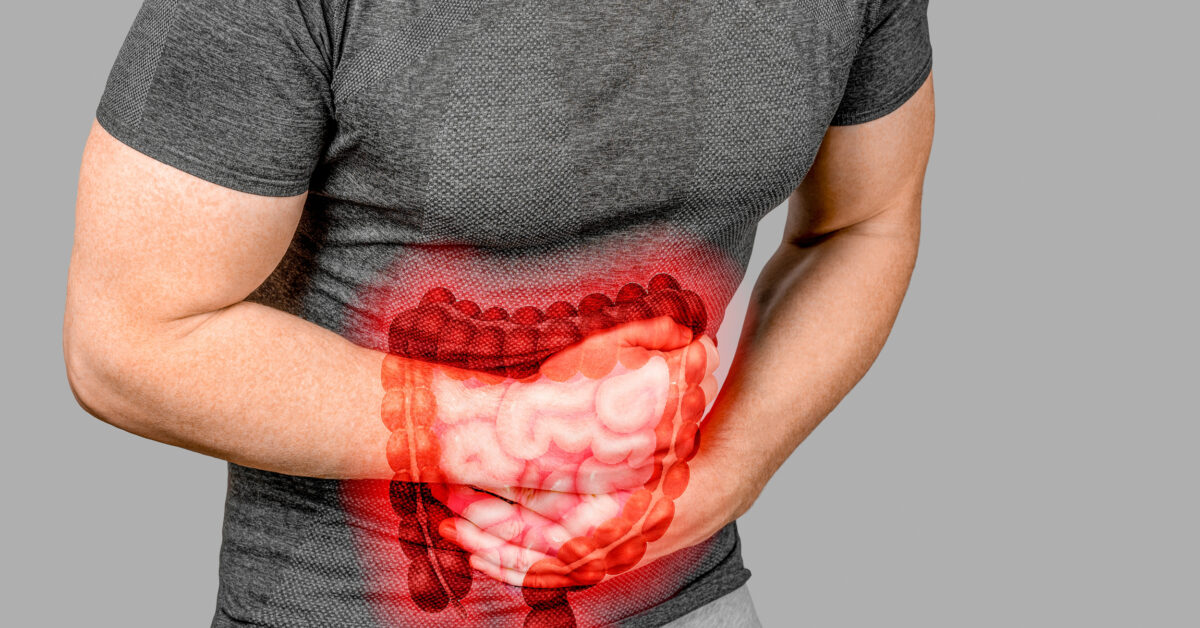
Vitamin D Boosts Body’s Defense Against COVID-19
March 2021
Headache & Wellness Center Opens in Lake Charles
March 2021by Lauren Morris
Being short of breath is a well-known symptom of COVID-19. The virus attacks your lungs, prevents them from working properly, and thus causes difficulty breathing. But it’s worth taking a look at what else may be causing your shortness of breath. “Because we are highly aware of COVID-19 right now, it might be easy to overlook other common problems that may cause issues with your breathing – issues that still need to be treated or handled,” says Dr. Andrew Bradberry, D.O., family medicine specialist with Imperial Health.
Allergies affect over 50 million Americans each year, and can be responsible for symptoms like itchy, watery eyes, congestion, and even shortness of breath. Allergies are extremely common. They can be caused by pollen, dust, pet dander, and other things that can enter your airways. Sometimes the allergic reaction can even cause an asthma attack. It can also start with something you touch or eat. If you’re having difficulty breathing due to a reaction, it’s important to relieve it as quickly as possible. “You can best manage your symptoms by talking with your doctor about a plan. Pay attention, too – if your symptoms change at all, you need to check in with your doctor,” says Dr. Bradberry.
“Anxiety will almost inevitably make you feel short of breath. Sometimes, you can feel it before you even realize you are experiencing anxiety,” says Dr. Bradberry. Usually though, when the anxiety lifts, the shortness of breath will, too, meaning this symptom of anxiety typically only lasts 10 to 30 minutes. Difficulty breathing due to anxiety usually develops quickly and can be alleviated through healthy coping mechanisms and breathing exercises. “The catch here is that many are experiencing heightened levels of anxiety due to the circumstances surrounding the pandemic. Some who have never had anxiety symptoms before are becoming well-acquainted with the symptoms so familiar to people who have been previously diagnosed,” he adds.
If you find yourself experiencing anxiety on a regular basis, be sure to talk to your doctor. It can wear on your overall health and shouldn’t go untreated.
Pneumonia is when a virus, bacteria, or fungus infects the air sacs inside your lungs, causing those sacs to fill with fluid, which makes it harder to breathe. You might cough up a thick, colored mucus and have a fever and/or chills. Symptoms can come on gradually or suddenly, and usually are accompanied by a high fever. “It’s easy to confuse influenza and COVID-19, and it’s the same with influenza and pneumonia, as they have very similar early symptoms. Some of these include fever, a dry cough, headache, muscle pain, and weakness. Within a day or two, the symptoms typically get worse, with increasing cough, shortness of breath and muscle pain,” explains Dr. Bradberry.
Call your doctor if your symptoms are severe, or if you or a loved one is in a high-risk group like individuals over the age of 65 or children age two and younger.
COPD (Chronic Obstructive Pulmonary Disease), sometimes known as “chronic bronchitis” or emphysema, is most often caused by cigarette smoking, but it can also be caused by other irritants, including cigar smoke, secondhand smoke, pipe smoke, air pollution, and workplace exposure to dust, smoke, or fumes. “Your bronchial tubes are naturally elastic as to force air out of your body when you breathe, but COPD causes them to lose their elasticity and over-expand, which leaves some air trapped in your lungs when you exhale,” Dr. Bradberry says. “Besides difficulty breathing, you might feel tightness in your chest, coughing, and/or wheezing.” People with COPD are at increased risk of developing heart disease, lung cancer, as well as a variety of other conditions.
COPD is a serious condition, but it can be managed with help from your doctor. The best and most important thing you can do is to quit smoking if you are a smoker.
Being anemic can make you weak and tired, and sometimes short of breath. It can also make you dizzy and pale, with cold hands and feet, and a fast heart rate. It affects 1.6 billion people worldwide, and can be caused by many things, the most common being an iron deficiency.
Anemia can be caused by pregnancy, a heavy menstrual cycle, or regular use of some over-the-counter pain medications. “When someone is healthy, an adequate amount of oxygen is conveyed to the heart, muscles, and organs. With anemia, the lungs overcompensate to bring in more oxygen, thus causing breathing issues. Even small exertions can cause shortness of breath or fainting spells,” Dr. Bradberry explains. There are many reasons a person might become anemic, so talk to your doctor if you’re exhibiting symptoms.
The common cold may irritate your lungs and airway and bring a cough that can make it hard to breathe. As most know, there’s no cure, but it usually gets better on its own in about a week. Differentiating between COVID-19 and a cold can be rather difficult, though. The COVID-19 virus is caused by SARS-CoV-2, while the common cold is most often caused by rhinoviruses. They spread similarly, and they have many common symptoms. However, there are differences:
| SYMPTOM OR SIGN | COVID-19 | COLD |
|---|---|---|
| COUGH | Usually (dry) | Usually |
| MUSCLE ACHES | Usually | Sometimes |
| TIREDNESS | Usually | Sometimes |
| SNEEZING | Rarely | Sometimes |
| SORE THROAT | Usually | Usually |
| RUNNY OR STUFFY NOSE | Usually | Usually |
| FEVER | Usually | Sometimes |
| DIARRHEA | Sometimes | Never |
| NAUSEA OR VOMITING | Sometimes | Never |
| NEW LOSS OF TASTE OR SMELL | Usually (Early – Often without a runny or stuffy nose) | Sometimes (Especially with a stuff nose) |
The COVID-19 virus can become serious once a person is infected, and it is rightly top of mind for all of us. “Just be sure you are still paying attention to your overall health and examining all possibilities when it comes to the source of your symptoms,” says Dr. Bradberry. “This way, you can treat yourself effectively, recover quickly, and avoid passing your germs to others.”






